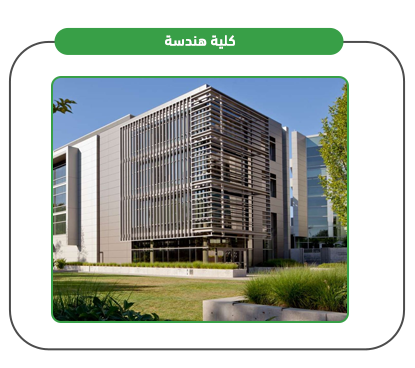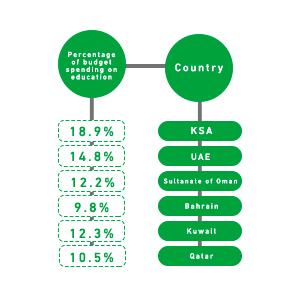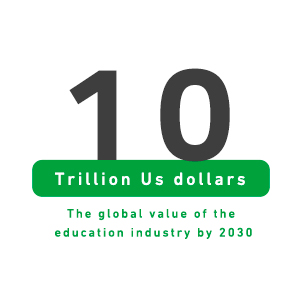The College of Engineering project is an investment concept aimed at establishing a specialized academic institution offering integrated educational programs in various engineering disciplines. This project relies on the design of modern buildings that include advanced laboratories and classrooms equipped with the latest technology, providing a distinguished educational environment that meets the needs of students. Additionally, curricula will be developed that are compatible with international standards, with a focus on enhancing the technical and practical skills required by the labor market. Furthermore, the College of Engineering project seeks to establish strong partnerships with local and international engineering companies and institutions to provide practical training opportunities that enrich the student experience and enhance their ability to apply theoretical knowledge in real-world situations. Furthermore, specialized research programs and workshops will be offered, aimed at developing students’ innovation and entrepreneurship skills. Furthermore, the project seeks to attract distinguished professors and experts in all engineering-related fields to ensure the quality of education and supervise research. Accordingly, the College of Engineering project seeks to prepare a generation of innovative engineers capable of meeting future challenges and developing society.

The College of Engineering project represents an ambitious vision to create an integrated educational institution that prepares qualified engineers to meet the challenges of the future. The college relies on the latest educational technologies, such as virtual reality and self-learning, to provide an advanced and flexible learning experience. It also focuses on enhancing practical aspects through strategic partnerships with the industrial sector, providing students with training opportunities in real-world work environments and equipping them with the skills required by the job market. In addition, the college develops specialized programs in modern engineering fields, such as artificial intelligence and the Internet of Things, in addition to offering advanced graduate programs for those wishing to delve deeper into various engineering disciplines. To encourage innovation, the college is working to establish business incubators that support students in transforming their creative ideas into successful entrepreneurial projects. Thanks to this integrated approach, the College of Engineering project represents a qualitative shift in university education, blending theoretical knowledge with practical application, enabling graduates to integrate effectively into the modern job market.

Advanced academic programs in various engineering fields<br>Advanced laboratories equipped with the latest technology<br>Academic consulting and guidance for students<br>Practical training programs in cooperation with companies<br>Support for scientific and engineering research<br>Employment and vocational training services<br>Comprehensive digital library<br>Organizing student activities and engineering competitions


Offering diverse engineering specializations that meet global market demands.
Buildings and laboratories equipped with the latest technology.
Partnerships with industrial institutions to provide field training opportunities.
Curricula that keep pace with the latest scientific and technological developments.
Encouraging scientific research and innovation in various engineering fields.
Enhancing students’ critical thinking and problem-solving skills.
Providing services that help students integrate into the job market after graduation.
Participating in regional and international scientific competitions and exhibitions to promote innovation.
Executive Summary
Study of project services/products
Market Size Study
Risk study

The Education Sector in the GCC Countries
Because Mashroo3k Economic Consulting and Market Research believes in the importance of the education sector and its role in localizing the national workforce, it has decided to present the following key indicators of the education sector in the GCC countries, calling for investment in this important sector:
The total number of students in early childhood development (including nurseries and kindergartens) in the GCC countries, according to the latest available statistics, reached 851,500 students.
The number of students in school levels in the GCC countries was estimated at approximately 9.3 million students (79.4% in the public sector and 20.6% in the private sector).
The number of students in adult education centers was estimated at approximately 181,247 students.
The number of higher education students was estimated at 2,206,446 students.
The number of early childhood teachers was estimated at 50,647.
The number of school teachers was estimated at approximately 727,904.
There are 5,806 existing early childhood education institutions.
There are 32,310 existing primary education institutions.
In recent years, governments in the Gulf Cooperation Council (GCC) countries have sought to bridge the gap between education and the labor market. They have adopted educational curricula that increase the share of vocational and technical education and encourage learning through modern media and technologies. In this context, we should not fail to point out the increased spending in these six countries on education and its quality, in order to graduate generations that meet the private sector’s workforce needs.
According to the latest statistics, Saudi Arabia spends 18.9% of its budget on education, the UAE spends 14.8% of its budget on education, the Sultanate of Oman spends 12.2% of its budget on education, Bahrain spends 9.8% of its budget on education, Kuwait spends 12.3% of its budget on education, and Qatar spends 10.5% of its budget on education. By 2023, the private education market in the GCC will reach $26.2 billion.
Global Education Sector
The global education services market was valued at approximately $2,882.52 billion by the end of 2021, and global experts expect the market to reach $3,191.79 billion by the end of 2022, achieving a compound annual growth rate (CAGR) of 10.7%. By 2026, the market will reach $4,623.90 billion, representing a CAGR of 9.7% over the forecast period.

By 2030, the global value of education as an industry will reach US$10 trillion.
By 2024, the value of online education worldwide will reach US$247.46 billion.
The AI education market will expand at a compound annual growth rate of 36% from 2022 to 2030.
In 2000, the number of students worldwide was approximately 657 million, and this number increased to 739 million in 2019.
In 2000, the number of secondary school students was approximately 452 million, and this number increased to 601 million in 2019.